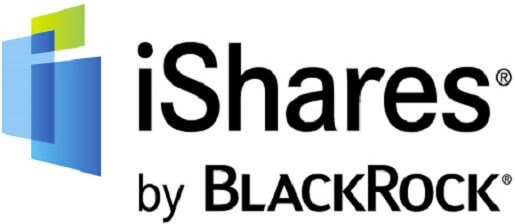Compare Index Tracker ISAs
Choose the best index tracker ISA to make the most of this year’s tax free allowance.
Investment ISAs put your capital at risk & you may get back less than you originally invested.
- Fund Choice: Tracks S&P 500 Index. Passive fund that seeks to mirror as closely as possible the performance of the 500 largest companies by market capitalisation in the USA such as Apple, Google, Tesla, Berkshire Hathaway & Mastercard. Capital at risk.
- Invest From: £25 pm
This is a low cost S&P 500 tracker fund with a 0.07% pa annual charge. The Fund aims to track closely the performance of the 500 largest companies (i.e. companies with large market capitalisation) within the United States market.
- Fund Choice: Tracks S&P 500 Index. Passive fund that seeks to mirror as closely as possible the performance of the 500 largest companies by market capitalisation in the USA such as Apple, Amazon, Tesla, Berkshire Hathaway & Visa. Capital at risk.
- Invest From: £25 pm
- Fund Choice: Tracks FTSE 100 Index. Largest company shares in the index include, Astrazeneca, Glaxosmithkline, HSBC & Diageo. Capital at risk.
- Invest From: £25 pm
A super low cost FTSE 100 tracker ETF fund with a 0.07% pa annual charge. The product has a record of tracking its benchmark to a high degree of accuracy and scored ahead of rivals on this measure.
- Fund Choice: Tracks FTSE 100 Index. Companies in the index include AstraZeneca, NatWest, Standard Chartered & Diageo. Capital at risk.
- Invest From: £25 pm
Low cost tracker with a 0.09% pa annual charge. Provides exposure to the FTSE 100 index of the largest companies listed on the London Stock Exchange at a highly competitive price.
- Fund Choice: Tracks FTSE 100 Index. Capital at risk.
- Invest From: £25 pm
A low cost FTSE 100 tracker with a 0.07% pa annual charge. Tracks the 100 largest listed companies in the UK. A low cost way to invest in this area of the market.
- Fund Choice: Tracks the FTSE 250 Index. The fund invests directly in shares that make up the index such as Direct Line Group, Greggs & Morrisons. Capital at risk.
- Invest From: £25 pm
A low cost FTSE 250 tracker with a 0.12% pa annual charge. Tracks the 250 largest listed companies in the UK. A low cost way to invest in this area of the market.
- Fund Choice: Tracks FTSE 350 Index. Capital at risk.
- Invest From: £25 pm
This is a low cost FTSE 350 tracker fund with a 0.16% pa annual charge. The aim of the Fund is to seek to achieve capital growth for investors by tracking closely the performance of the FTSE 350 Index.
- Fund Choice: Tracks FTSE World Technology Index. Largest 5 holdings of the index include Apple, Microsoft, Google, Facebook & Taiwan Semiconductor Manufacturing. Capital at risk.
- Invest From: £25 pm
Low cost technology fund with a competitive 0.70% ongoing annual charge. A low cost way of investing in shares of global companies engaged in information technology activities, as represented by the FTSE World Technology Index. The fund has significant holdings in Apple and Microsoft.
- Fund Choice: Tracks the MSCI World Index. This index is a market cap weighted index of 1,585 companies throughout the world across 23 countries. Capital at risk.
- Invest From: £25 pm
One of the cheapest world equity exchange-traded funds available makes this a great way for investors to generate performance in line with the world’s major stock markets. This ETF seeks to track the performance of the MSCI World index, comprised mainly of large companies from 23 developed markets. Ongoing charges are 0.2%.
- Fund Choice: Tracks MSCI China Index. The index is made up of the largest stock market-listed companies in China including Tencent, Baidu, Alibaba & China Construction. Capital at risk.
- Invest From: £25 pm
A low cost index tracker fund with an ongoing charge of 0.30% pa provides investors with exposure to the largest companies in China that make up the index.
- Fund Choice: The Fund aims to track the performance of the Solactive L&G Enhanced ESG UK Index. Capital at risk.
- Invest From: £25
Tracks shares in companies that demonstrate good environmental, social and governance efforts and are incorporated or headquartered or which have their principal business activities in the UK.
What is an index tracker fund ISA?
Index tracker funds are designed to directly track a stock index in order to replicate its performance.
Index tracker fund managers do not need to outperform a benchmark or make any risk-based investment decisions, so the management fees they charge to their investors are usually a lot lower compared to standard managed funds.
However, while the charges are lower, the investments are not weighted for risk levels or monitored for performance or strategic investment purposes, so they can sometimes be outperformed by managed funds in similar sectors.
How do index tracker funds work?
An index tracker fund aims to replicate the direct performance of a specific stock index, usually by investing proportionately in the underlying shares in that index.
For example, a FTSE 250 index tracker fund will pool its investors’ money together and then spread it across all of the companies listed in the FTSE 250.
It will give each company a weighting based on the market capitalisation of their shares (share price multiplied by the number of shares in issue) so that any movement in each company’s value will correctly affect the overall performance of the FTSE tracker ISA.
What are some examples of indexes that tracker funds invest in?
There are many index tracker funds listed on the London Stock Exchange that track international markets and indexes and you can hold these in a Stocks and Shares ISA account.
This list gives you an idea of why kinds of indexes and sectors you can gain exposure to via an index tracker fund ISA:
- FTSE 100
- FTSE AIM 100
- FTSE techMARK 100
- North American indexes
- Asia Pacific indexes
- Global indexes
- Industry indexes (e.g., technology)
There is a wide range of sectors and indexes available, and some trackers will invest in similar areas so you will need to compare the pros and cons of each to find the best one for you.
What are the benefits of an index tracker fund ISA?
- Invest in an index or sector
Index tracker funds offer a unique ability to invest in a particular index or sector that you think will perform well. Whether it’s technology, the Japanese stock market, or smaller UK companies, you can directly invest in a sector you think will perform well.
- Instantly diversify your portfolio
Instead of picking a handful of companies in a particular index to invest in, you can get exposure to potentially hundreds of companies through one fund.
Not only do you not have to research the individual companies to invest in, but you also benefit from the diversification of your portfolio.
If one company in the index goes bust, the index tracker’s performance will not take as much of a hit as the other 99% of holdings will dilute the effect.
- You will pay lower charges
Perhaps the most attractive factor of index tracker funds is the low management fees.
A managed fund needs to pay professionals to research, monitor and rebalance the fund constantly, which costs a lot of money. This means that they charge their investors more money to cover the costs.
You can find a funds’ charges in the Key Investor Information Documents listed as OCF / TERs.
Typically, an index tracker fund will charge around 0.1%, whereas a managed fund will charge between 0.5% and 1% per annum.
These charges are deducted from within the funds themselves and so are reflected in the overall performance of the funds.
What is the best index tracker fund ISA?
You need to think about two key things when choosing the best index tracker ISA:
- The Stocks and Shares ISA provider you pick
- The actual ISA tracker funds you invest in
Which index tracker fund(s) you invest in depends on your investment strategy and experience, but you should also consider the ongoing charges and whether the specific fund managers have a good reputation.
When comparing index fund ISA providers to choose from, there are some key points to keep in mind:
- Provider Annual Management Charges
- Dealing Fees and other ad hoc charges
- The range of index tracker funds available
- Customer service ratings and reliability
Frequently Asked Questions
Can I withdraw my money from an index tracker fund ISA?
Yes, you can withdraw funds from an index tracker ISA at any time. The process will likely take about a week as your investments will need to be sold first.
How much money can I put in an index tracker fund ISA?
You can contribute up to £20,000 to an index tracker ISA in the 2025/26 tax year. Your annual allowance refreshes each tax year.
Can I lose money in an index tracker fund ISA?
Your investments will go up and down in line with the index that they track, and so you could lose money in an index tracker ISA.
How do I apply for an index tracker fund ISA?
You can open an index tracker fund ISA online, over the telephone or by post.
You will need to add money to open your account, either by debit card payment or via a Direct Debit contribution.
Can I transfer my ISA into an index tracker fund ISA?
You can transfer either a Cash ISA or another Stocks and Shares ISA into an index tracker fund ISA. You will need to complete a transfer form with your new ISA provider to do this.
Can I open an index tracker fund ISA with my partner?
As ISA accounts can only be held by individuals you cannot open a joint index tracker fund ISA account.
Can I have more than one index tracker fund ISA?
You can invest in more than one index tracker fund in your Stocks and Shares ISA account. You can also have more than one Stocks and Shares ISAs at once, but you cannot contribute to them both in the same tax year.
Are index tracker fund ISAs safe?
Index tracker funds are just as safe as any other type of Stocks and Shares ISA. They are regulated by the Financial Conduct Authority and covered by the FCSC scheme. However, your investments can do down in value.




